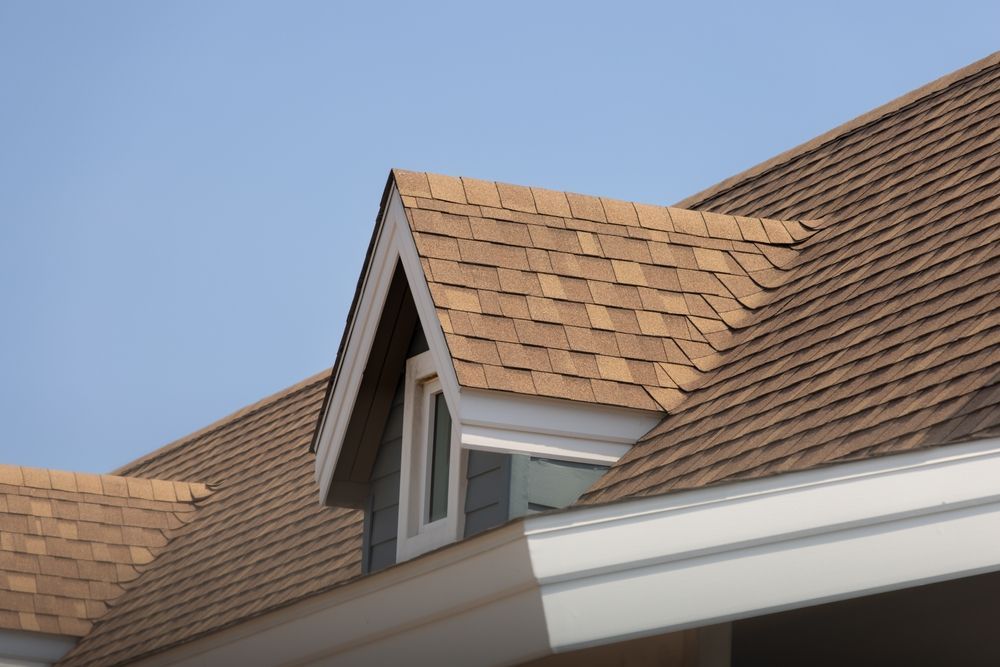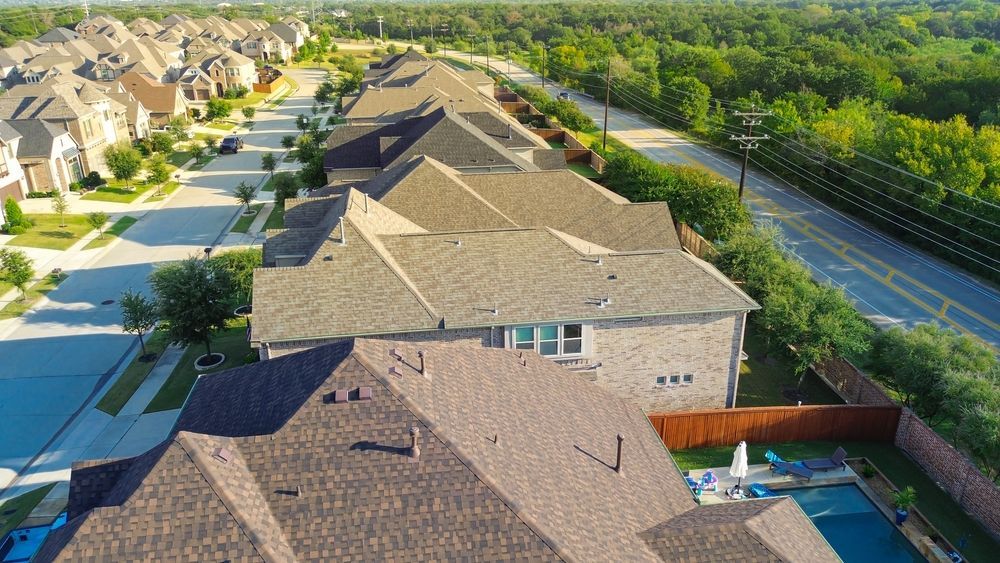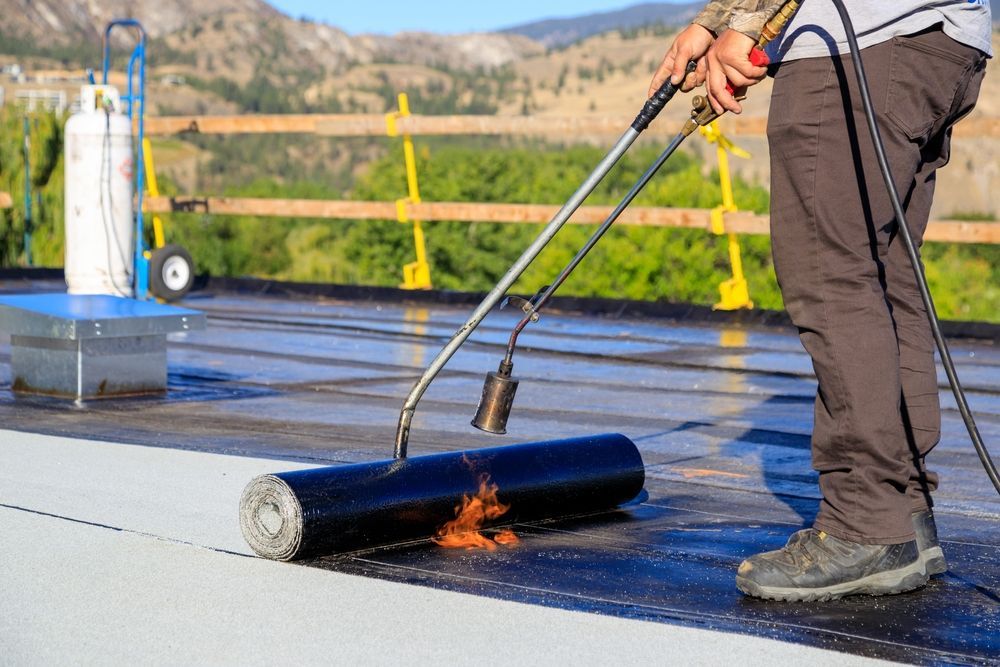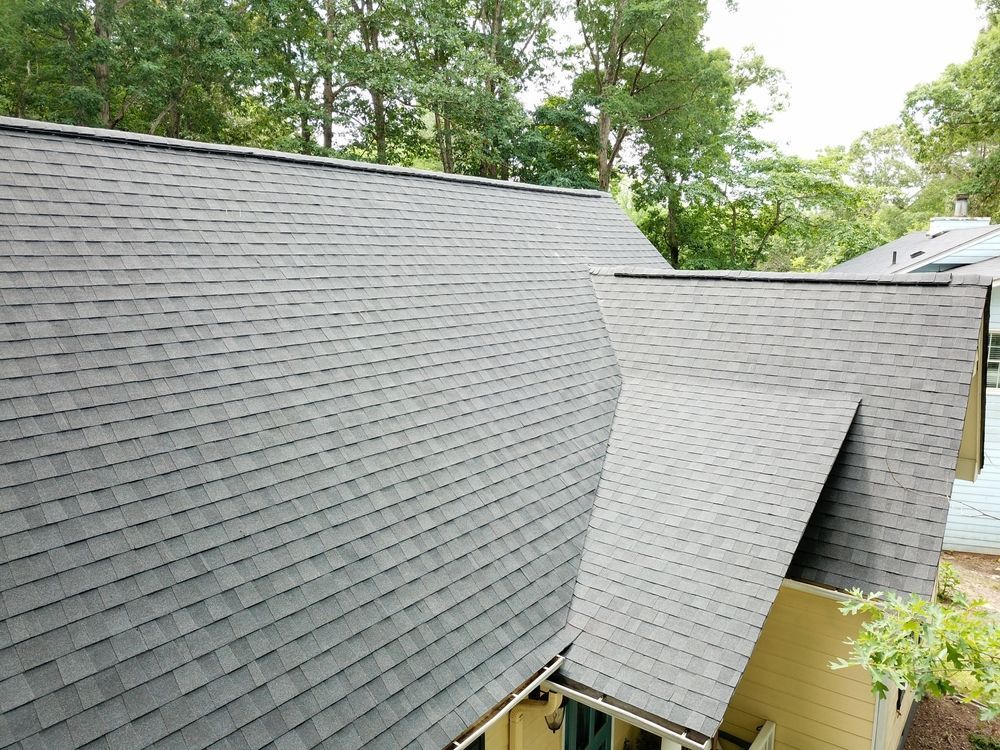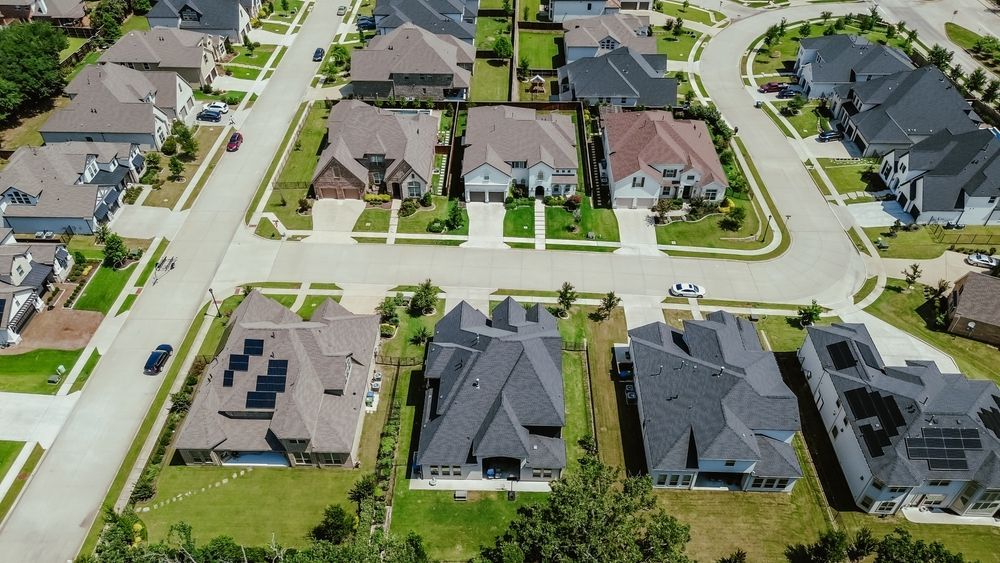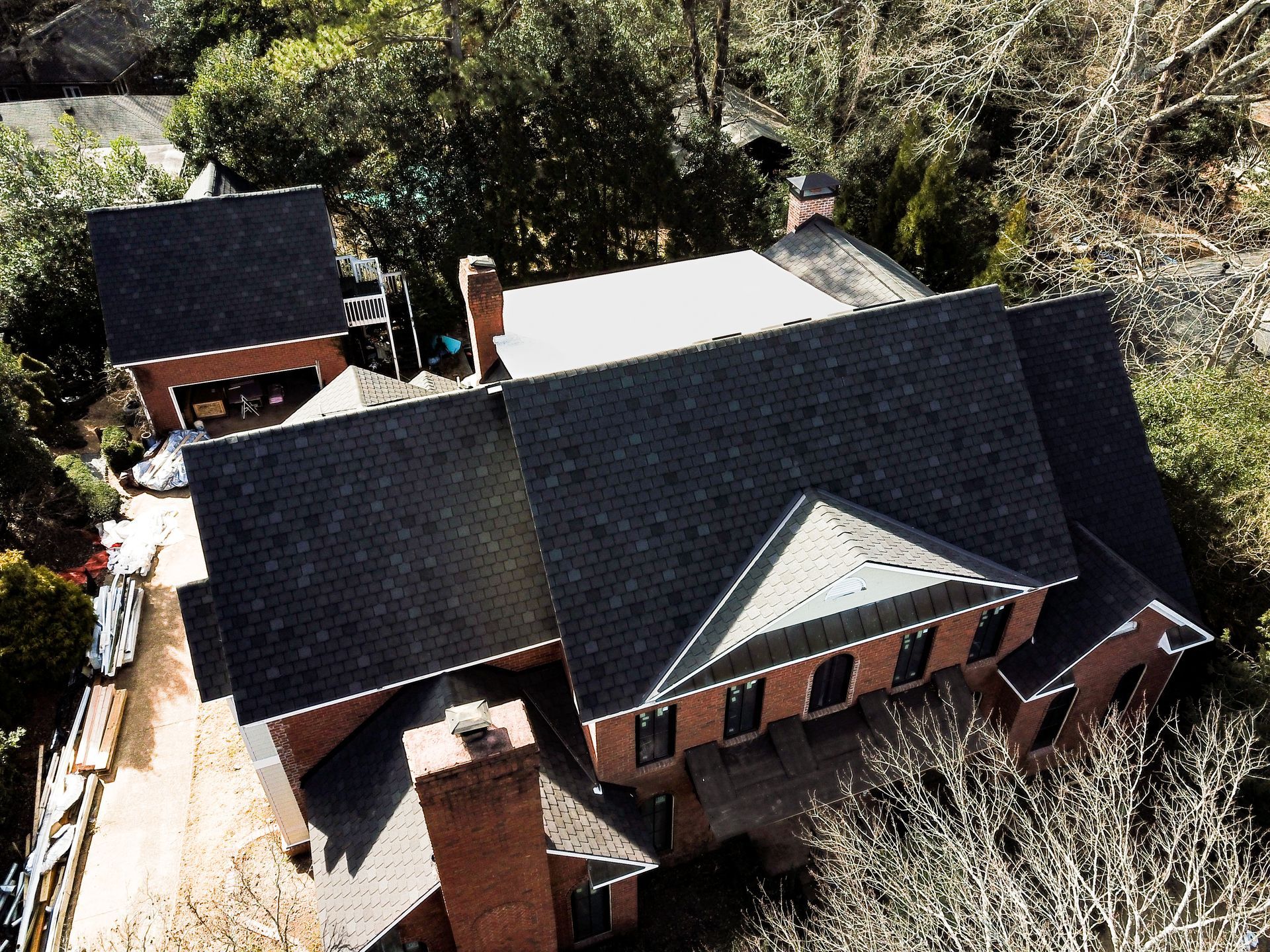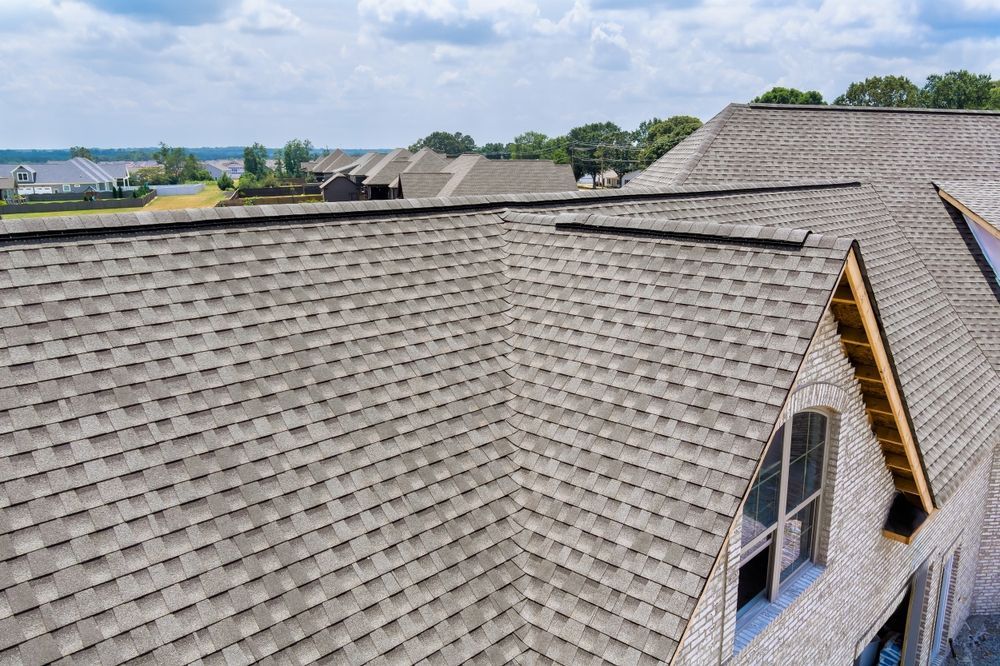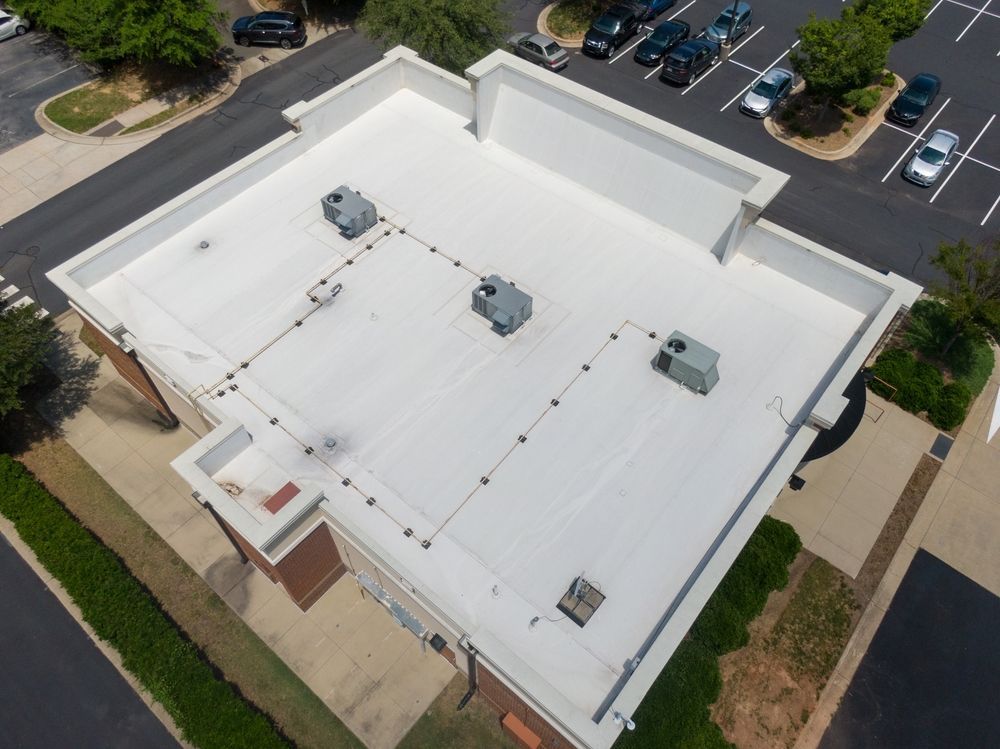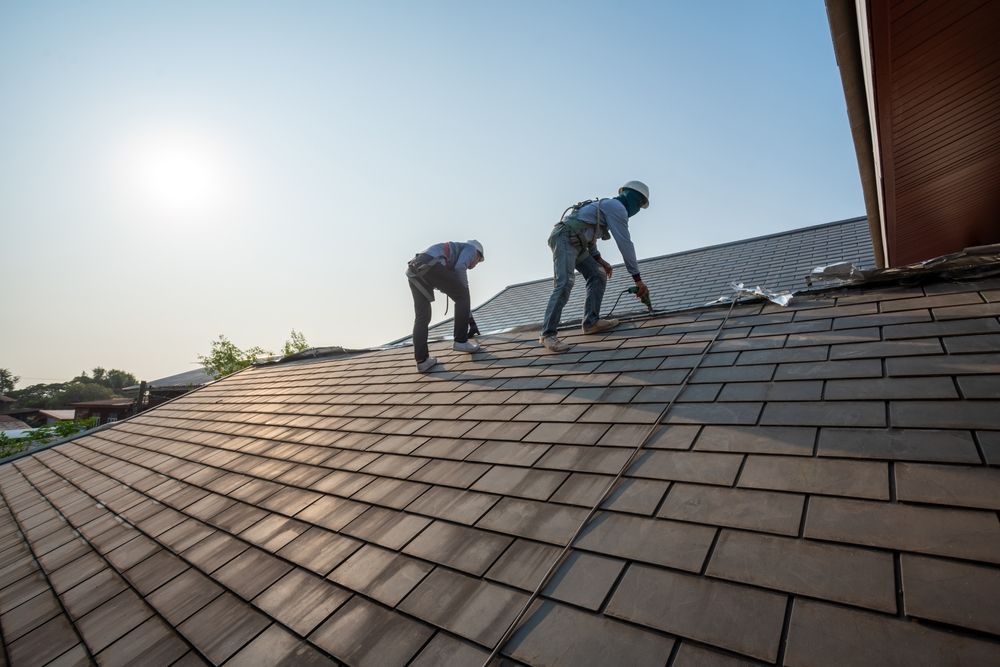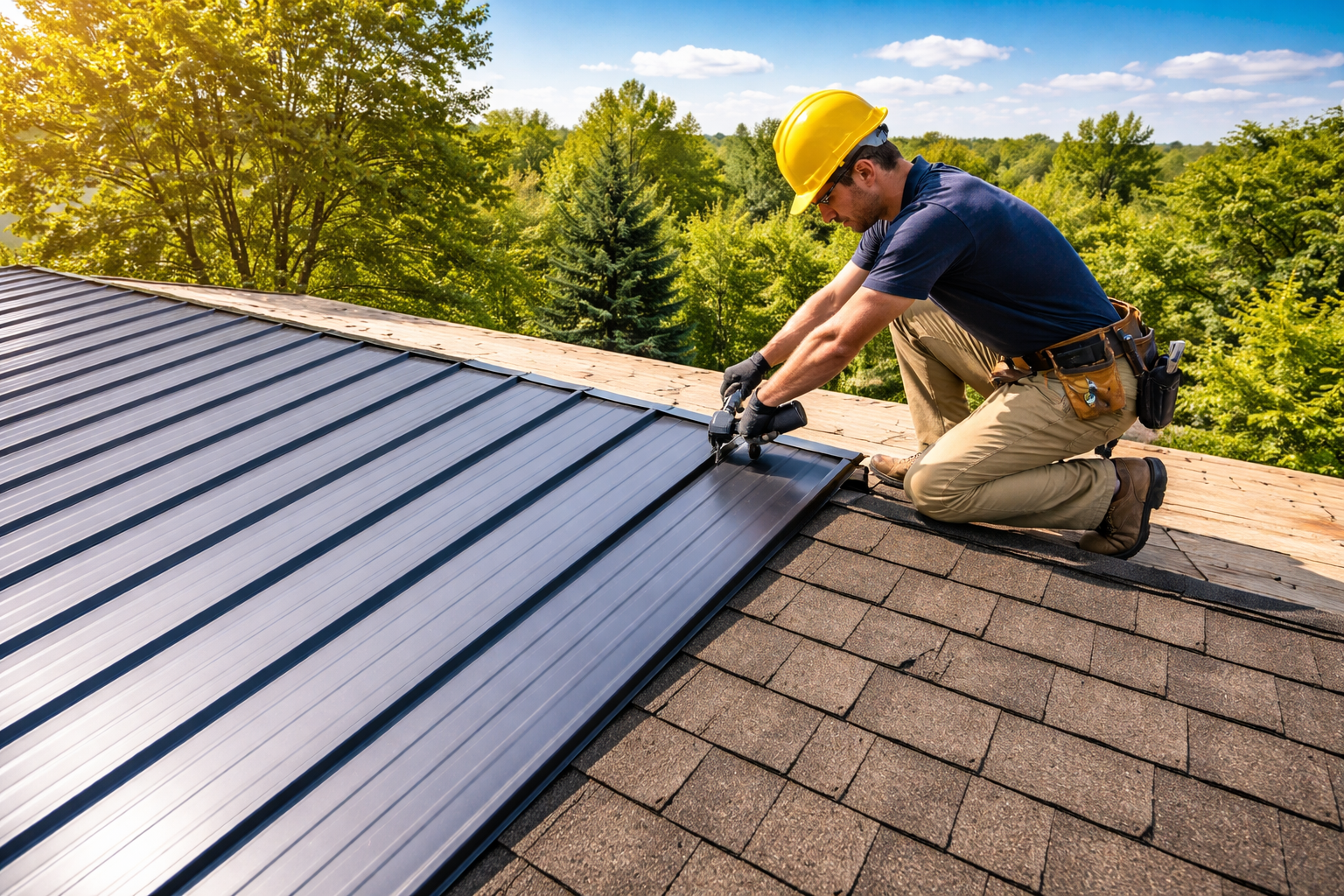Understanding Atlanta Roof Costs for Homeowners
Owning a home is one of the largest investments one makes in a lifetime. That's why taking care of it and its value is important to the day you wish to move or upgrade. The biggest maintenance cost for your home will probably be a roof replacement. The aftereffects of Atlanta's high winds, storms, and varying weather make roof repair essential to preserving your home's worth in the eyes of potential buyers.
The average cost of a new roof in Atlanta can vary widely, leaving homeowners unsure about their expenses. This article will break down key factors that influence roofing costs, provide an overview of pricing for various roofing materials, and discuss the importance of hiring quality contractors in the area. By understanding these elements, homeowners can make informed decisions, budget effectively, and avoid common pitfalls in the roofing process. This guide aims to alleviate concerns about unexpected expenses and empower readers to move forward with confidence in their roofing projects.
Understanding the Average Cost of a New Roof in Atlanta
The cost of a new roof in Atlanta can vary significantly based on several factors, including the choice of materials for the roof replacement, as well as the type of roof design, such as a gable roof. Homeowners must consider the complexity of the installation, which directly impacts the overall cost.
On average, homeowners should expect to spend between $5,000 and $15,000 for a complete roof replacement. This range reflects variances in roofing materials, labor costs, and any necessary roof repairs that may arise during the replacement process.
Another critical factor influencing cost is adherence to local building code requirements. Certain codes dictate materials and installation methods, which can affect pricing based on compliance measures and necessary adjustments to new roof designs.
Additionally, the slope and size of the roof will determine how much material is needed for installation. A steeper or more complex roof design generally requires more time and resources, which can lead to higher costs in the Atlanta area.
Factors That Influence Roofing Costs in Atlanta
Roofing costs in Atlanta are influenced by various factors that homeowners should understand before proceeding with a roofing replacement. Key aspects include the impact of roofing materials on prices per square foot, how roof size directly affects overall expenses, and the role of roof shape and pitch, such as gable designs, in pricing. Additionally, assessing labor costs for installation and evaluating the need for old roof removal versus overlay can significantly affect the renovation budget.
The Impact of Roofing Materials on Prices
The choice of roofing materials significantly influences the overall cost of a roof replacement in Atlanta. Higher-quality materials, such as slate or metal, can lead to increased fees compared to more common options like asphalt shingles. Homeowners preparing a roof replacement estimate should carefully evaluate the longevity and durability of the materials selected, as this can impact their long-term home improvement decisions.
Understanding the price differences among various roofing materials allows homeowners to make informed choices that align with their budgets and expectations. For instance, opting for energy-efficient options may result in higher initial costs but can contribute to savings on energy bills over time. Engaging with local contractors for an accurate Atlanta roof replacement quote can help homeowners receive a fair assessment based on their material preferences and installation requirements.
How Roof Size Affects Overall Cost
The size of a roof plays a significant role in determining the overall cost of a replacement in Atlanta. Larger roofs require more materials, such as shingles or slate, which directly increases expenses. Homeowners must account for both the square footage and the complexity of their roof design, as these factors contribute to labor costs and any additional needs, such as structural reinforcements or climate-specific considerations.
Moreover, the shape and pitch of the roof can further impact pricing. Steeper roofs typically increase labor difficulty and time needed for installation. For instance, a gable roof may require different approaches in handling roofing materials compared to a flat roof. Therefore, understanding the implications of roof size helps homeowners not only anticipate costs but also explore options that may provide long-term benefits, such as enhanced durability and energy efficiency.
The Role of Roof Shape and Pitch in Pricing
The shape and pitch of a roof have significant implications for pricing in Atlanta. Roofs with steep pitches often present greater challenges during installation, requiring additional safety measures and labor time. For example, a gable roof, known for its triangular shape, may necessitate specialized flashing techniques to prevent water damage. This complexity can lead to higher overall costs compared to a flat roof, which may be easier to manage despite its own set of challenges.
Additionally, the choice of roofing material plays a role in the cost breakdown. Metal roofs, while offering durability and longevity, can also increase the budget, especially if the roof shape complicates installation. Homeowners should consider how the design affects both material choices and potential issues like inadequate drainage. This understanding helps them make informed decisions that align their roofing options with their budget and needs while mitigating future maintenance concerns.
Assessing Labor Costs for Roof Installation
Labor costs for roof installation significantly influence the overall price of a new roof in Atlanta. Hiring a qualified roofing contractor is essential so the installation meets local building codes and standards. This becomes especially important when utilizing materials such as asphalt shingles or flat roofs, as each requires specific installation techniques that can impact their longevity and performance. Homeowners should seek estimates from multiple contractors to gain a better understanding of expected labor fees and any associated costs related to insurance coverage.
Additionally, the complexity of the roof design can affect labor costs. For instance, a flat roof might present different challenges compared to more intricate designs, leading to variations in the time required for installation. Homeowners should consider these factors when assessing costs, as well as how labor efficiency may affect the overall investment. Engaging with a reliable roofing contractor will provide insights into potential hidden costs and help align the project with the homeowner's budget and expectations.
Evaluating the Need for Old Roof Removal vs. Overlay
When evaluating whether to remove the old roof or overlay it, homeowners should consider the condition of the existing materials, especially after events like hail storms. If the current roof shows signs of extensive damage, such as compromised wood or structural integrity, a full removal may be necessary. This choice can impact the overall price significantly, with removal often leading to higher costs, but it secures a solid foundation for the new installation.
Insurance policies may cover specific scenarios involving roof damage, making it essential for customers to check their coverage before deciding on removal versus overlay. If choosing to overlay a roof, the new material must be compatible with the old to avoid future issues, which can sometimes mean higher costs in the long run. Therefore, understanding these factors helps homeowners make informed decisions that align with their needs and budgets.
Average Pricing Breakdown for Different Roofing Materials
The cost factors associated with various roofing materials play a crucial role in a roof replacement in Atlanta. This section will provide a comprehensive analysis of shingle roofing costs, average prices for metal roofing, an overview of tile roof expenses, insights into flat roofing options, and the pricing of synthetic materials. Each of these elements considers factors like roof pitch, wear and tear, potential warranties, and resilience against wind, offering homeowners valuable information for informed decision-making.
Shingle Roofing Cost Analysis
Shingle roofing remains one of the most popular choices for homeowners in Atlanta due to its cost-effectiveness and versatility. On average, the expense for asphalt shingles ranges from $3 to $5 per square foot, making it a budget-friendly option compared to more premium materials. Installing quality shingles not only enhances the curb appeal of a home but also contributes to the overall energy efficiency, providing homeowners with substantial long-term savings on energy bills.
For those concerned about the environment, there are environmentally friendly shingle options available that prioritize sustainability without compromising quality. These products can offer enhanced durability and efficiency, ultimately reducing both the immediate and long-lasting costs associated with roofing maintenance. Homeowners looking to balance their budget and sustainability will find that investing in shingle roofing is a practical decision that aligns with both their financial and ecological values.
Metal Roofing Average Prices
Metal roofing represents a higher investment initially, with average prices ranging from $7 to $12 per square foot in the Atlanta area. The durability and longevity of metal roofs often justify the roof replacement costs, as they can last significantly longer than traditional materials. Homeowners should consult with a qualified roofer to assess ventilation needs and provide proper installation, which can enhance both the performance and efficiency of the roof.
Furthermore, opting for metal roofing can improve customer service experiences by reducing future maintenance issues. These roofs are designed to withstand harsh weather conditions commonly faced in Atlanta, providing peace of mind. Homeowners can benefit from exploring different metal options, such as aluminum or steel, while keeping in mind that the ultimate choice should align with their specific needs and budget considerations for an Atlanta roof installation.
Tile Roof Expense Overview
Tile roofing is a popular choice among Atlanta homeowners due to its durability and aesthetic appeal. Typically, the costs for tile roofing range from $10 to $15 per square foot, which reflects its ability to withstand severe weather conditions, such as heavy rain and hail. While an initial investment is required, the longevity of tile roofs can significantly reduce wear and the need for frequent repairs, ultimately benefiting property owners in the long run.
Additionally, homeowners often find that the right tile roofing can offer advantages regarding home insurance. Many insurance providers may provide discounts for properties featuring tile roofs, recognizing their resistance to damage from severe weather. When selecting tile as a roofing material, it is crucial for homeowners to evaluate their options, including bitumen-based alternatives, so they choose a solution that aligns with their budget and property protection needs.
Cost of Flat Roofing Options
The cost of flat roofing options in Atlanta typically ranges from $3 to $6 per square foot, depending on the materials chosen and the complexity of the installation. Homeowners should assess their current roofing policy to understand coverage for flat roofs, as insurance can vary based on risks associated with different roofing types. Engaging a qualified general contractor can make sure installation meets local codes while optimizing the roofing system's performance and longevity.
Flat roofs may involve additional considerations, such as the potential installation of features like skylights, which can enhance the functionality and aesthetics of the home. However, integrating such elements can increase overall costs due to the need for specialized flashing and structural support. Homeowners must evaluate these factors carefully to minimize future risks and invest wisely in their roofing project.
Synthetic Roofing Materials Pricing
Synthetic roofing materials can vary in price, typically ranging from $4 to $10 per square foot, depending on the type of product selected. These materials are designed to offer durability and may include features such as enhanced building insulation, which improves energy efficiency. Homeowners looking to replace their roofs with synthetic options should consider how these materials can withstand storm conditions, providing better safety and resilience compared to traditional roofing choices.
Investing in synthetic roofing materials can also positively impact roofing insurance premiums. Many insurers recognize the benefits of these materials, which can lead to lower rates due to their resistance to damage. Homeowners should engage with their insurance providers to understand potential discounts when opting for synthetic options so they make a well-informed decision that aligns with both budget and long-term safety needs.
The Importance of Selecting Quality Contractors in Atlanta
Selecting a quality Atlanta roofing contractor is essential for a successful roofing project. Contractor experience plays a crucial role in pricing, as seasoned professionals understand the intricacies of residential roofing, including decking requirements. Licensing and insurance costs are vital for protecting investments, while grasping contractor estimates can prevent unexpected expenses. Homeowners must focus on getting the best value for their roofing investment.
How Contractor Experience Influences Pricing
The experience of a roofing contractor plays a significant role in determining the overall pricing for roof installation in Metro Atlanta. Seasoned contractors possess in-depth knowledge of the local construction environment, including how humidity affects materials and installations. Their familiarity with regional manufacturing standards helps the roofing system chosen to meet both durability and aesthetic expectations without unnecessary complications, which could lead to increased costs for homeowners.
Moreover, experienced contractors are adept at overcoming potential challenges that may arise during the construction process, such as unexpected structural issues or local building code requirements. Their ability to deliver efficient solutions not only helps maintain a project within budget but also protects the homeowner's investment in the long run. With reliable contractors, homeowners in the Atlanta area can feel confident that their roofing project will be executed properly, minimizing the risk of future repairs or maintenance costs.
Licensing and Insurance Costs
When hiring a roofing contractor in Atlanta, understanding the importance of licensing and insurance costs is essential. A licensed contractor not only adheres to local building codes but also demonstrates a commitment to quality work that protects the market value of a homeowner's property. Furthermore, having the proper insurance coverage can significantly reduce the homeowner's liability in case of accidents or damages occurring during the project, especially when dealing with components like chimneys or attic spaces.
Homeowners should also be aware of how these factors can affect their insurance deductibles. If damages arise due to improper installation or substandard materials, the costs associated with repairs may not fully be covered, leading to unexpected financial strain. By selecting contractors with the appropriate licensing and insurance, homeowners can safeguard against potential future issues while their investment is well-protected and aligned with their long-term renovation goals.
Understanding Contractor Estimates
Understanding contractor estimates is vital for homeowners in Atlanta planning a roof replacement. A detailed estimate should encompass all aspects of the project, including materials like Owens Corning shingles, labor, and possible costs related to areas such as the valley or flashing. Homeowners should pay attention to the contractor's reputation and inquire about their experience with similar roofing projects for transparency in the estimates provided.
When reviewing estimates, homeowners should also consider how depreciation might affect future roofing costs. Engaging with contractors who offer clear estimates that outline their process not only helps in budgeting but also provides insight into the quality of materials and workmanship expected. Homeowners are encouraged to ask for a written estimate and to include their email address for easy communication so all questions are answered before the project begins.
Getting the Best Value for Your Investment
Getting the best value for a roofing investment requires careful consideration of factors such as contractor experience and material quality. Homeowners should seek contractors who offer a detailed contract that outlines the project's scope, materials like CertainTeed shingles, and the expected length of the installation. This transparent approach means there are no surprise costs and helps in aligning the project with the homeowner's budget and needs.
Additionally, understanding potential issues, such as mold growth in hidden areas like dormers, is crucial. High-quality contractors can identify these risks during the initial inspection and provide solutions that prevent future problems. By investing in a reputable contractor with a proven track record, homeowners can rest assured that their new roof will be durable and long-lasting, ultimately saving them money on repairs or replacements down the line.
Common Myths About Roofing Costs in Atlanta
Homeowners often encounter misconceptions about roofing costs that can lead to poor decisions. Misunderstandings surrounding DIY roofing can result in unexpected expenses. Additionally, warranty costs may not be as clear as they seem, while beliefs about roofing longevity often underestimate overall durability. Addressing these myths provides practical insights that aid homeowners in making informed choices regarding their roofing investments.
Misconceptions Around DIY Roofing
Many homeowners believe that taking on a DIY roofing project can save them significant costs, but this is often a misconception. While the intention to save money is understandable, inexperienced individuals may overlook essential aspects such as proper flashing, ventilation, and local building codes. These oversights can lead to costly repairs down the line or even the need for a complete roof replacement, which negates any initial savings achieved by avoiding professional labor.
Moreover, DIY roofing can result in safety risks that might not be apparent at first glance. Climbing on a roof requires proper techniques and equipment to prevent accidents, which inexperienced individuals may underestimate. Engaging a qualified contractor not only guarantees the installation is performed safely and accurately but also provides warranties and insurance coverage that protect homeowners in case of future issues, ultimately offering peace of mind and value for their investment in a new roof.
Understanding Warranty Costs
Warranties for roofing materials can vary significantly in terms of coverage and duration, which may lead to confusion among homeowners in Atlanta. Generally, warranties can range from a few years to limited lifetime coverage, depending on the material used. Understanding these warranty terms helps homeowners make informed decisions about which option best aligns with their budget and long-term investment in their property.
Homeowners should also consider that some warranties may be pro-rated, meaning the coverage amount decreases over time. This can result in unexpected out-of-pocket expenses for repairs or replacements if issues arise later. Engaging with a knowledgeable roofing contractor can clarify warranty options, helping homeowners select appropriate materials that offer reliable protection and peace of mind regarding their roof's performance and durability.
Debunking Myths About Roofing Longevity
Many homeowners believe that all roofing materials come with the same longevity expectations, leading to misconceptions about their real durability. For instance, while asphalt shingles may last 15 to 30 years, metal and tile roofs can exceed 50 years with proper maintenance. Understanding these differences is crucial for homeowners to make informed choices that suit their long-term needs and budget.
Another common myth suggests that the initial cost of a roof is the most important factor, overshadowing its lifespan. While lower-priced options may seem appealing, they might incur higher maintenance costs and require earlier replacements. Investing in high-quality materials, though potentially more expensive upfront, can provide significant savings over time, enhancing both the property's value and its overall protection.
Budgeting for Your New Roof in Atlanta
Creating a realistic roofing budget involves several key factors, including understanding cost-saving tips for homeowners and exploring financing options for roofing projects. It is essential to prepare for unexpected expenses that may arise during installation. Each of these aspects will provide practical insights to aid homeowners in making informed financial decisions for their roofing needs.
Creating a Realistic Roofing Budget
When creating a realistic roofing budget, homeowners in Atlanta should first assess their financial situation and determine how much they can allocate to the project. They must consider not only the cost of the new roof itself, which can range widely depending on materials and complexity, but also potential expenses tied to labor, permits, and unforeseen repairs. By establishing a clear budget from the onset, they are more equipped to make informed choices that meet both their financial capabilities and aesthetic preferences.
Homeowners should also factor in the possibility of additional costs that may arise during the roofing installation. For example, underlying issues such as water damage or structural deficiencies may require attention before the new roof can be safely installed. Engaging with a reputable roofing contractor for a comprehensive assessment can help identify these potential concerns early, allowing homeowners to adjust their budgets accordingly for a smoother roofing project overall.
Cost-Saving Tips for Homeowners
Homeowners in Atlanta can reduce roofing costs by obtaining multiple estimates from qualified contractors. This practice not only helps in comparing prices but also provides insight into the quality of materials and services offered. Additionally, scheduling roof replacement during off-peak seasons may lead to lower labor costs, as contractors often have more availability and can offer competitive pricing.
Another effective cost-saving strategy is to consider long-lasting roofing materials that may require fewer repairs over time. For example, investing in metal or tile roofs can initially seem expensive, but their durability leads to fewer replacements and maintenance expenses in the long run. By making informed choices about materials and installation timing, homeowners can effectively manage their roofing budget and enhance the value of their property.
Financing Options for Your Roofing Project
Homeowners in Atlanta considering a new roof have several financing options available. Many roofing contractors offer payment plans or financing programs that allow customers to spread the cost over time, making high-quality roofing more accessible. These solutions can alleviate the financial burden upfront and enable homeowners to manage their budgets without compromising on the materials or services required for a successful installation.
Additionally, exploring personal loans or home equity lines of credit can provide homeowners with the funds needed for their roofing projects. These financing avenues often offer competitive interest rates and flexible repayment terms, which can be advantageous for homeowners looking to invest in durable roofing solutions. Consulting with financial professionals can help identify the best option and make a well-informed decision that is aligned with the homeowner's financial goals and roofing needs.
Preparing for Unexpected Expenses
When homeowners plan for a new roof in Atlanta, anticipating unexpected expenses is crucial to maintaining a smooth project. Issues such as hidden water damage, weak decking, or the need for structural reinforcements can arise during the replacement process. By working with a knowledgeable roofing contractor, homeowners can gain insights into potential problems that may require additional funding, allowing for a more accurate budget estimate.
Another aspect of preparing for unexpected costs involves considering variations in material prices and labor fluctuations. Prices may change due to local market conditions or supply chain disruptions, potentially affecting the final expense of the roofing project. Homeowners are encouraged to keep a contingency budget for such fluctuations, which can provide peace of mind and financial security while the roofing project remains on track without compromising quality.
